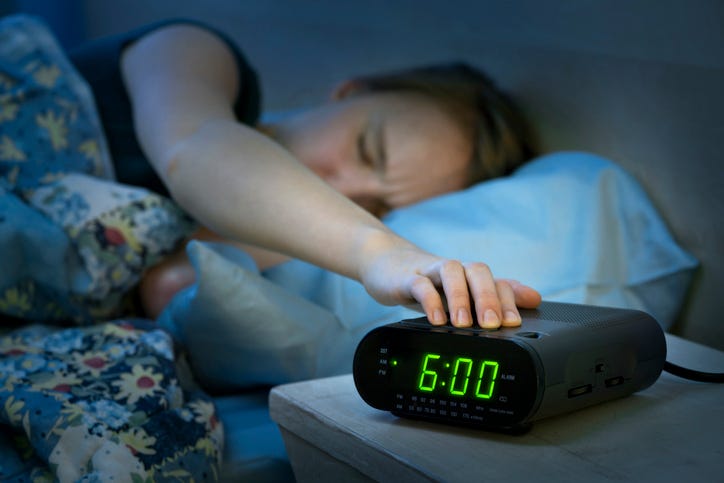
You're either one of those people who springs right up when the alarm goes off in the morning, or you're a serial snoozer who just wants 10 -- or 30 -- more minutes under the covers.
For those who hate getting out of bed, there's some good news.
It was often thought that using the snooze button could have negative effects on sleep and the brain's ability to wake up. However, new research shows hitting the snooze button multiple times has no impact on sleep quality.
Moreover, the study, published in the Journal of Sleep Research, says hitting the snooze button might even be helpful with waking.
"The findings indicate that there is no reason to stop snoozing in the morning if you enjoy it, at least not for snooze times around 30 minutes. In fact, it may even help those with morning drowsiness to be slightly more awake once they get up," Tina Sundelin, researcher at Stockholm University and lead author of the study, said in a statement.
The study included two parts. The first portion saw 1732 individuals answering questions about their morning habits, including how often they use the snooze button. Many reported snoozing regularly, and the average time spent snoozing per morning was 22 minutes. The most common reason for snoozing was feeling too tired to get out of bed when the alarm goes off.
In the second portion, 31 "habitual snoozers" spent two nights in a sleep lab in order to measure their sleep in more detail. One morning they were allowed to snooze for 30 minutes and the other they had to get up right when the alarm went off.
Researchers say even though participants were disturbed during the half hour of snoozing, most of them got about 20 minutes of sleep -- meaning that their total night's sleep was barely affected. Additionally, researchers say they found no clear effects of snoozing on stress hormone levels, morning sleepiness, mood or overnight sleep structure.
"Our study shows that half an hour of snoozing does not have negative effects on night sleep or sleep inertia, the feeling of not quite being alert in the morning," Sundelin said in a statement. "If anything, we saw some positive outcomes, such as a decreased likelihood of waking from deep sleep. When participants were allowed to snooze they were also a bit more quick-thinking right when they got up."
Researchers noted that their study only included "people who are regular snoozers and find it easy to go back to sleep after each alarm."
"Snoozing is most likely not for everyone," Sundelin added.
Follow KNX News 97.1 FM
Twitter | Facebook | Instagram | TikTok
